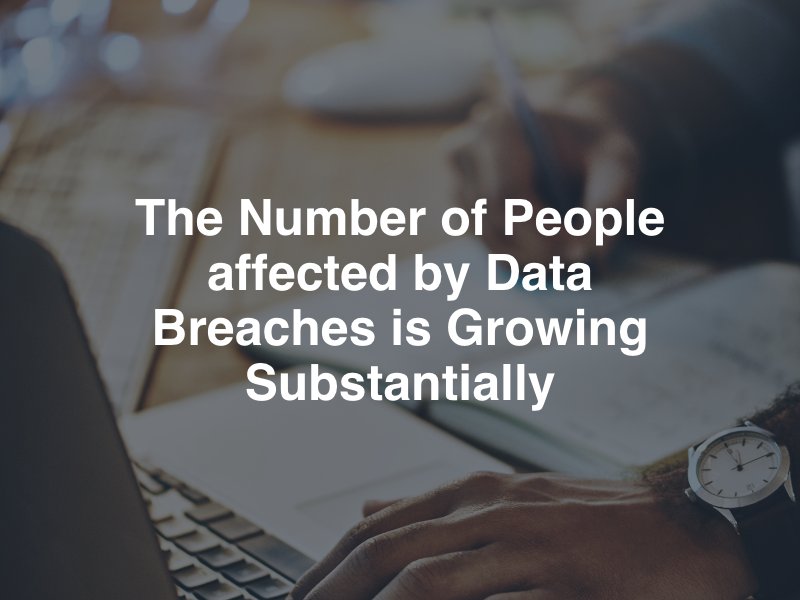20+ year of experience
Insurance Defense Lawyers
Personal attention
Eager to Protect our Clients Find out if you have a case Find out if you have a case
Steps To Take After A Data Breach
Cybercrime is on the rise globally. Data breaches are affecting greater numbers of people as more private data is stored in the digital realm and becomes vulnerable to hackers. Data breaches often involve personal identifiable information that can be used to harm those whose data was compromised.
Despite rapid growth and development in the cybersecurity industry, hackers keep finding ways to change the game and gain access to vital personal information. If you have been the victim of a data breach, the following information is what you should know and what you need to do to protect yourself. Schedule your free, no-obligation consultation to discuss what to do after a data breach or call our office at 561-655-3925.
According to the Identity Theft Resource Center (ITRC), data breaches reached an all-time high in 2023 with 3,205 breaches affecting 353,027,892 people. While the number of total breaches declined slightly in 2024, the number of people affected increased by 283% to 1,350,835,988.
The kind of personally identifiable information that is most often exposed in a data breach includes:
- Name
- Phone number
- Address
- Email address
- Social security number
- Birth date
- Medical history
- Driver’s license
- User name/password
- Bank account number
- Insurance account number
- Bank card number
Cyber-attacks are responsible for almost 80% of the data breaches.
What to do if You are Notified of a Data Breach
If you receive notification that your personal information has been compromised in a data breach, don’t ignore it. You need to act quickly. The cyber criminals who have stolen your data may intend to sell it or use it to steal your money, ruin your credit, and cause a lot of inconvenience and distress.
The exact steps that should be taken after a data breach will depend on the type of information exposed. However, it is a good idea to begin monitoring your credit reports for any unusual changes.
User name/Password
If the user name and/or password on any of your accounts was exposed, the first thing to do is log onto the affected accounts and change your passwords. Contact the entity that sent the notification and follow any recommendations to further secure your information.
Enable any additional security measures, such as multi-factor authentication, to help make it difficult for your information to be accessed without your authorization. Consider using a password manager for secure password storage.
Financial Account Number
If the account number of a bank account or credit card has been exposed, the affected accounts should be closed immediately and new accounts opened. Account statements should be checked for unusual activity and monitored closely for at least a month, and then at least monthly.
Social Security Number
Contact the three main credit reporting agencies (Equifax, TransUnion, Experian) and put a one-year fraud alert on your credit report. This notifies lenders to verify your authority before processing credit applications. You can also limit access to your credit report by placing a security freeze on the information.
Monitor your credit reports weekly at AnnualCreditReport.com and consider adding a credit monitoring service to track and alert you to suspicious activity on your credit reports. Experian offers a free credit monitoring service.
Create a my Social Security account and periodically review your statement to make sure the information is correct. If you anticipate an income tax refund, file early so someone can’t use your social security number to try and claim your refund.
Medical Insurance Number
Contact your insurance provider and see if they are able to close out your old number and put your information under a new number. Take advantage of any monitoring services offered. Carefully review billing statements for charges associated with services or procedures that are not yours.
Data Breach Protection May Not Be Enough Contact Our Lawyers Today
Having personal information exposed in a data breach means you may be targeted by scammers. Be alert for email, call, or text attempts to get you to take some action involving sensitive information. If you learn that someone has taken action against you using your personal information, you may want to consult an identity theft lawyer so you will understand your rights and can determine your legal options at 561-655-3925.
Find out in 3 easy steps if you have a case.
All fields are required. If you need immediate assistance, do not hesitate to call us at (1-844) 742-7646
Recent Posts
- How to Rebuild Credit After Identity Theft
- How Scammers Use Public Posts to Build Profiles for Fraud
- How Identity Theft Impacts Mortgage Applications in Florida
- How Identity Theft Can Affect Employment Background Checks
- Guide to IRS Identity Theft Procedures and Legal Recourse
- Freezing vs. Locking Your Credit: Which Is Better for Florida Consumers?
